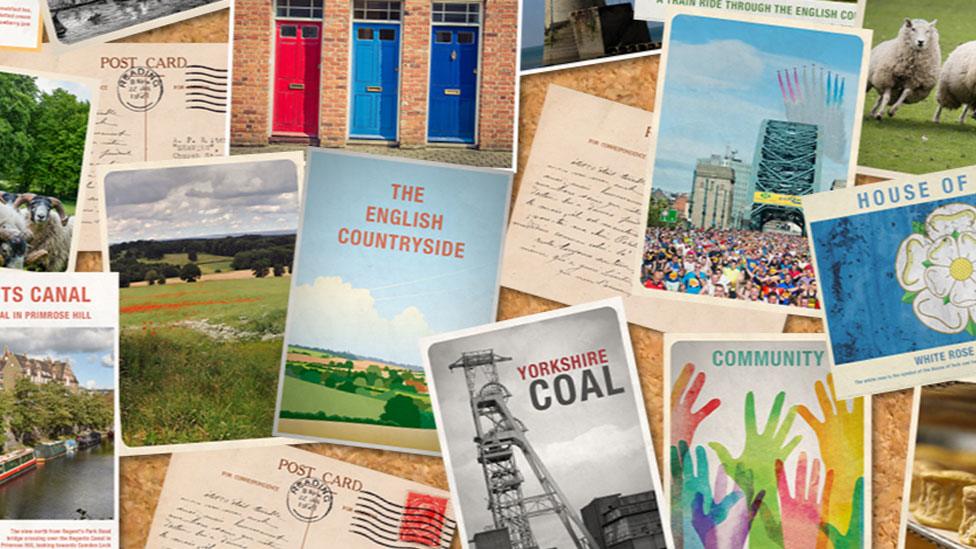Scots 'more optimistic about future', according to BBC survey
- Published
- comments

Scots who took part in the survey were more likely to have a sunny outlook on the future
People in Scotland are more likely to be optimistic about the future than people elsewhere in the UK, according to a new BBC survey.
The BBC commissioned surveys across the UK about attitudes toward identity.
More Scots surveyed said the country's best days were in the future (36%) than in the past (29%).
This was a marked contrast to England, where 49% said the country was better in the past and only 17% said the best days were yet to come.
Polling experts said data showing greater optimism about the future in Scotland and Wales was largely down to responses from independence supporters in these areas.
The BBC survey, conducted by YouGov, external, spoke to more than 1,000 people in Scotland, as well as a similar number in Wales and more than 20,000 in England.
The survey found stronger local identity among Scots than those elsewhere in the UK, with 84% of respondents north of the border identifying "very strongly" as being Scottish.
And while 59% of people surveyed in Scotland said they felt strongly British, only 26% said they felt "very strongly" about this - lower figures than for those recorded in England and Wales.
Scots who took part in the survey were split on the country's future, with 36% saying the best days were ahead, 29% saying Scotland was better in the past and 27% saying they were unsure. The remaining 8% said the country was at its best right now.
Despite this fairly even split, the figures were more positive than those for other parts of the UK, with only 17% of people in England having a rosy view of the future and 49% saying it was better in the past. In Wales, 33% of people said the best days were ahead, with 20% saying they were in the past.
Best days
Party preferences also feature, with 47% of Conservative supporters saying they thought Scotland was better in the past, while 64% of those who identified themselves as SNP supporters said the best days were in the future.
Viewed through the lens of the Brexit referendum, 40% of Remain voters said Scotland would be better in the future, compared to only 29% of Leave voters.
Despite this apparent hope for the future, few people who took part in the survey thought their local areas were currently on the up - 14% of Scots surveyed said their local area was improving, compared to a third saying it was getting worse.
Polling expert Prof Sir John Curtice said the people with an optimistic view of Scotland's future were "predominantly those who are supporters of independence".
He said: "What seems to be the case in Scotland is that SNP supporters in particular, supporters of Scottish independence, are inclined to feel the best days are ahead.
"They obviously believe that someday in the not too distant future Scotland might become an independent country, and therefore as a result that things might be better.
"You can see the same thing in Wales. Plaid Cymru supporters have much more tendency to be optimistic.
Prof Curtice added: "Conversely, south of the border it is older voters and those who voted to leave the European Union who say look, the better days are behind us.
"Evidently at least so far for them the prospect of Brexit has not proved sufficient to think that Britain is going to become great again."
The Brexit vote was also reflected in figures showing few people strongly identify as being European - including in Scotland, despite 62% of voters backing Remain in the referendum.
Even among these Remain voters, a majority (54%) said they did not identify strongly as being European.
Among all Scottish respondents, 67% said they did not identify strongly as being European - although the English and Welsh figures were even higher, at 71% and 77% respectively.
The survey was conducted for the BBC by YouGov. The sample size in Scotland was 1,025 adults. The fieldwork took place between 25 and 30 April 2018. Read the results here, external.
- Published6 June 2018

- Published6 June 2018

- Published6 June 2018

- Published3 June 2018

- Published3 June 2018
- Published5 June 2018